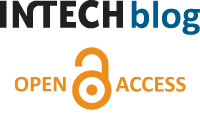I have always imagined that Paradise will be a kind of library.
(Jose Louis Borges)
 When librarian happens to also be a writer, he imagines an infinite library, like Jorge Louis Borges did when he described one with books containing every possible ordering of letters and punctuations marks. Although majority of the books in his Universe would prove gibberish, the library would have to contain, somewhere, every coherent book written, or that might ever be written, and every possible permutation or slightly erroneous version of every one of those books. However, in Jorge’s view, this glut of information would leave his librarians in a state of suicidal despair.
When librarian happens to also be a writer, he imagines an infinite library, like Jorge Louis Borges did when he described one with books containing every possible ordering of letters and punctuations marks. Although majority of the books in his Universe would prove gibberish, the library would have to contain, somewhere, every coherent book written, or that might ever be written, and every possible permutation or slightly erroneous version of every one of those books. However, in Jorge’s view, this glut of information would leave his librarians in a state of suicidal despair.
Online Information Consumer Today
At OCLC, Online Computer Library Center, they have recently drawn up a document on the context and community of library users in 2010 – Perceptions of Libraries 2010. The vision of the OCLC service is to create a unified presence for libraries on the Web. Concerned with the emerging “online information consumer”, they have provided “hard data about the current perceptions of the library, Internet and information, and the ties among the three.” The library’s brand are at all times, they claim, “books” – and today this concept is even stronger than it was five years ago (when they published a paper on perceptions of libraries in 2005). Fast adoption of social networking sites, they note, has caused libraries to show growing presence on social media sites. “In 2007, a YouTube search found 25,700 videos that included “library,” “libraries” or “librarians.” In January 2011, that number has rock eted to 1,010,000 videos, a 3,830% increase.” In addition, 11% of larger U.S. public libraries have a Facebook site today.
eted to 1,010,000 videos, a 3,830% increase.” In addition, 11% of larger U.S. public libraries have a Facebook site today.
However, library’s websites do not seem to be well visited, due to, as students report, better information provided on other sites, the existence of physical library itself, the insufficient material available on the website, fines which are too high, and finally, 10% of college students admit that they didn’t know it existed.
An Opportunity In Sight
 What can prove then as an advantage for libraries with such low usage of their websites and their budgets recently shrank? Perhaps the glut of information itself. The OCLC report shows that users find library websites results more trustworthy and more accurate than those provided by search engines, although search engines are considered faster, more convenient and more easy to use. Libraries Thriving website has recently shown an initiative in making libraries take the leading action, proving that they were well equipped to help users navigate information resources. Users, they claim at the website, would surely benefit from this guidance.
What can prove then as an advantage for libraries with such low usage of their websites and their budgets recently shrank? Perhaps the glut of information itself. The OCLC report shows that users find library websites results more trustworthy and more accurate than those provided by search engines, although search engines are considered faster, more convenient and more easy to use. Libraries Thriving website has recently shown an initiative in making libraries take the leading action, proving that they were well equipped to help users navigate information resources. Users, they claim at the website, would surely benefit from this guidance.
“The certitude that some shelf in some hexagon held precious books and that these precious books were inaccessible, seemed almost intolerable,” Borges explains in his aforementioned story, “The Library of Babel”. Many libraries have released us from this intolerance by dropping their volumes of books into the Public Domain, like British Library did. Opening up access would surely give us the reason to argue with those 12% of users who don’t visit the library website due to a high subscription fee requested.
The following period of opening up information could prove crucial for libraries. They may either re-establish their ancient role of “the chest medicine of the soul” on the web, or they may confine themselves to physical walls of their rock hard buildings.










